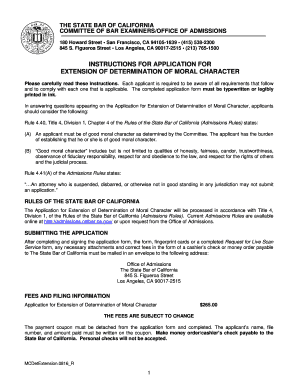My paper “Moral Character: Making Sense of the Experiences of Bar Applicants with Criminal Records” is out from the Manitoba Law Journal. It is an interview-based study of bar applicants, bar officials, and ethics attorneys, and the way they experience and process their pasts and presents via the California Bar’s moral character determination. The journal is open source, so you’re all welcome to read the full thing (which mostly speaks through my interviewees’ voices) but for those pressed for time, here are just a few of my findings:
- The most dominant emotion that arose in the interviews was shame, stemming from the juxtaposition of my interviewee’s pasts and their elite professional futures. My interviewees, most of whom had managed to
morph their self-identity to conform to their new status as candidates for the legal profession, were reduced by the process into their former shoes as convicts and/or prisoners. - The bar process exacerbated the shame. The stringent requirements of accuracy in disclosure are obtuse to the difficulties of recreating unsettled adolescent pasts, and the choreography of the hearings (no support for the applicants, cross examination styles, etc.) was described by six of my interviewees, without any prompting from me, as “the worst experience of my life.” This, mind you, included people who had done time in jail and/or juvie.
- There was a striking contrast between the Bar’s framing of remorse as monolithic and absolute and the much more complex ways in which people described their feelings about their past crimes. The certainty that bar officials can detect insincerity is not borne by empirical science, which casts very serious doubt on anyone’s ability to tell true from false remorse. Moreover, the mediocre community theater aspect of the hearings does not leave room for people to discuss their experiences with true insight and nuance, and they know this, and it frustrates them. Moreover, cultural performance/presentation stands in the way of communicating remorse in a way that will be properly “read” by officers of a largely white, elite, male profession.
- The demographic effects of professional exclusion from the bar are largely unknown because, until recently, the bar didn’t even collect data on the race/class of people and how they fared in the moral character process (we do have evidence that black male lawyers are significantly discriminated against in disciplinary proceedings.) White applicants felt that their deviance and alienation was unseen because it wasn’t part of the usual demographics boxes; applicants of color felt that they were doubly deviant and “otherized.”
- There is a lot of hubris, which echoes the hubris I found when I studied parole hearing, in the assumption that the key to rehabilitation is the performance of psychic excavation in front of a panel of strangers. This is nonsense from a research standpoint. We know that rehabilitation is what rehabilitation does: people who are holding down jobs and going through law school in good standing are great prospects for professional success–and they don’t necessarily overlap with people who give a convincingly weepy performance in front of 4-7 people in suits. Specifically, the bar ignores established, robust findings from life-course criminology according to which just going through and finishing law school is in itself a strong indicator of desistance.
- The bar frequently diagnoses substance abuse issues and forces people through substance abuse programs. The interviewees themselves report that they found some value in the programs even though they didn’t actually have a substance abuse problem. I don’t know whether this reflects people in denial about their problems, overcautiousness on the part of the bar, or both.
- Even as people experience joy and relief at their eventual admission to the bar, the experience continues to haunt them and adds stress to their professional and personal lives. The extent to which people are open about their backgrounds after their successful admission to the bar varies widely, with public interest lawyers much more open and corporate lawyers much more circumspect.
- What the bar views as uniformly negative baggage is actually a rich and important asset to the profession. My interviewees talked about their experiences as a catalyst for their decision to pursue justice for clients and about their deep understandings of injustice and oppression. But treating criminal records as liabilities, rather than resources, we are missing on an important opportunity to make the bar more receptive and service-oriented to clients who would greatly benefit from their lawyers’ empathy and compassion, through professional diversification beyond the usual census boxes and through education of the profession as a whole.
- Even though my interviewees regarded their law schools–and especially their faculty–as sources of empowerment and good advice, there’s more law schools can do. We can alert people, in law school application forms, that accuracy in describing their backgrounds is key to being regarded as honest and forthright later, in the bar admission process. We can give people access to their admissions package when they prep for the moral character. And we can devote a smidgeon of the immense energy we’ve devoted to lowering the bar passage rate to advocating for our students with criminal records.

